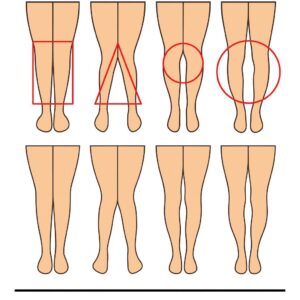In the scorched hills of Sonora, 1913, the revolution had already swallowed everything good. Soldiers rode through villages like locusts — taking food, horses, and whatever else they wanted. When they left, they left ghosts.
Diego Vargas used to be a blacksmith. His forge was small but steady, the kind of place where men came for horseshoes and stayed for stories. He lived with his wife, Isabela, and their daughter, Rosa, in a stone house on the edge of the desert. Life wasn’t easy, but it was honest — until the war came crawling north.
One night, a patrol rode through. By morning, the forge was cold, the house was silent, and Diego was something else entirely.
When the sun rose, the village found him kneeling in the ashes of his home, holding his wife’s necklace in one hand and his daughter’s small doll in the other. His face was calm, too calm, like someone who had finally seen the truth about the world — that mercy was a luxury for men who had nothing left to lose.
He buried them behind the forge. Then he sold his tools, bought a rifle, and rode south.
For weeks, he followed rumors. Soldiers, deserters, bandits — the lines between them had blurred until no one could tell one from the other. But Diego listened for names, for accents, for stories of a patrol that had passed through a small northern town and left only smoke behind.
He found them near Chihuahua — five men camped along a dry riverbed, drunk on stolen mezcal and pride. Diego didn’t rush. He watched them for two days, memorizing their faces, their voices, the way they laughed when they talked about what they’d done.
When he finally approached, it was without anger. Just purpose.
He rode into camp as the sun fell behind the hills. The men looked up, hands hovering near their belts. “Evening,” Diego said quietly. “Mind if I warm myself by your fire?”
They laughed. Why would they fear a lone man on a tired horse? They invited him to sit. They poured him a drink. And as the bottle passed, the air began to change — the way it does before a storm breaks.
When the first man reached for his revolver, Diego was already standing.
The fight was quick. Not clean, but quick. He left one man alive — the one with the scar across his jaw. The one who’d boasted about the girl with the doll.
Diego didn’t ask questions. He already knew the answers. When he rode away, he didn’t look back.
Word spread fast. The story changed as stories do — some said he’d killed twenty men, others that he’d vanished into the mountains to lead his own army. The revolution was full of ghosts like that — men who’d lost everything and found something worse: purpose.
Diego became known as El Herrero, the Blacksmith. Some called him a bandit, others a folk hero. He didn’t care. He wasn’t fighting for Mexico or any flag. He was fighting for memory — for the people the world had decided were expendable.
He rode with whoever shared his anger — farmers, deserters, even old enemies. They robbed convoys, ambushed generals, burned outposts. But Diego never took gold or land. He only took names — the names of men who’d done what those soldiers had done to his family.
Years passed. The war shifted. Governments rose and fell. But Diego kept moving, the desert carving his face into something harder than grief.
One summer evening, he stopped at a small village near Zacatecas. A girl no older than Rosa had been when she died was sweeping the steps of the church. When she saw him, she froze — maybe from fear, maybe from recognition.
“You’re him,” she whispered. “The one they talk about. The blacksmith who hunts soldiers.”
Diego nodded once.
“My father says you bring trouble.”
“He’s right,” Diego said. “Trouble always comes looking for me.”
That night, the federales came — a full regiment, sent to flush out bandits from the hills. The villagers begged Diego to leave, but he didn’t. He stayed, because he knew what soldiers did to towns like this when they didn’t find who they wanted.
By dawn, the ground outside the church was littered with spent shells. Diego stood on the steps, rifle in hand, coat torn and bloodied. The soldiers had fled, leaving behind their wounded and their dead. The villagers came out one by one, staring at the quiet man who’d stood between them and the same fate that had once destroyed his home.
When the priest offered him water, Diego shook his head. “Save it for the living.”
He rode out before the sun climbed high, leaving behind nothing but footprints and a legend that would outlast him.
Years later, when the revolution finally burned itself out, an old rifle was found half-buried near a dry well north of Durango. No name, no body. Just a necklace tangled around the stock — a silver pendant shaped like a small heart, worn smooth by time.
They say the villagers still tell stories about him. About the blacksmith who carried grief like a weapon, who never stopped riding until justice was done. Some say he still walks the desert at night, following the ghosts of soldiers who never faced judgment. Others say he finally found peace — that somewhere beyond the dust and blood, he found his family again.
But those are just stories.
What’s certain is this: in a land torn apart by men who killed in the name of power, Diego Vargas killed in the name of love. And maybe that was the only kind of justice the revolution ever truly delivered.





